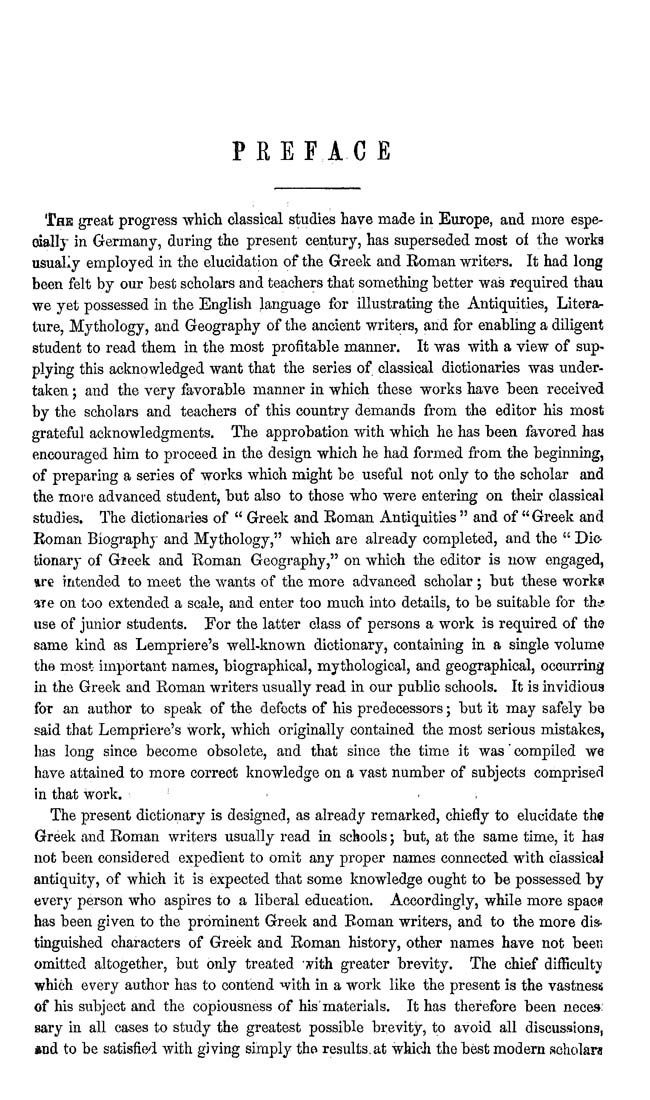PREFACE
The great progress which classical studies have made in Europe, and more espe¬
cially in Germany, during the present century, has superseded most of the works
usually employed in the elucidation of the Greek and Roman writers. It had long
been felt by our best scholars and teachers that something better was required thau
we yet possessed in the English language for illustrating the Antiquities, Litera¬
ture, Mythology, and Geography of the ancient writers, and for enabling a diligent
student to read them in the most profitable manner. It was with a view of sup¬
plying this acknowledged want that the series of classical dictionaries was under¬
taken ; and the very favorable manner in which these works have been received
by the scholars and teachers of this country demands from the editor his most
grateful acknowledgments. The approbation with which he has been favored has
encouraged him to proceed in the design which he had formed from the beginning,
of preparing a series of works which might be useful not only to the scholar and
the more advanced student, but also to those who were entering on their classical
studies. The dictionaries of " Greek and Roman Antiquities " and of "Greek and
Roman Biography and Mythology," which are already completed, and the " Dic¬
tionary of Gieek and Roman Geography," on which the editor is now engaged,
sire intended to meet the wants of the more advanced scholar ; but these works
<*re on too extended a scale, and enter too much into details, to be suitable for the
use of junior students. For the latter class of persons a work is required of the
same kind as Lempriere's well-known dictionary, containing in a single volume
the most important names, biographical, mythological, and geographical, occurring
in the Greek and Roman writers usually read in our public schools. It is invidious
for an author to speak of the defects of his predecessors; but it may safely be
said that Lempriere's work, which originally contained the most serious mistakes,
has long since become obsolete, and that since the time it was compiled we
have attained to more correct knowledge on a vast number of subjects comprised
in that work. ■ ■
The present dictionary is designed, as already remarked, chiefly to elucidate the
Greek and Roman writers usually read in schools; but, at the same time, it has
not been considered expedient to omit any proper names connected with classical
antiquity, of which it is expected that some knowledge ought to be possessed by
every person who aspires to a liberal education. Accordingly, while more spac«
has been given to the prominent Greek and Eoman writers, and to the more dis¬
tinguished characters of Greek and Roman history, other names have not been
omitted altogether, but only treated with greater brevity. The chief difficulty
which every author has to contend with in a work like the present is the vastness
of his subject and the copiousness of his'materials. It has therefore been neces:
sary in all cases to study the greatest possible brevity, to avoid all discussions,
and to be satisfied with giving simply the results, at which the best modern scholars
|








